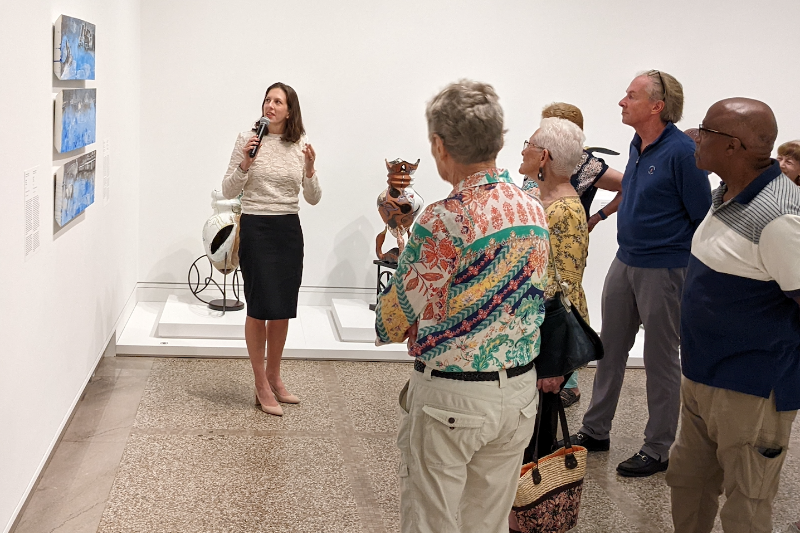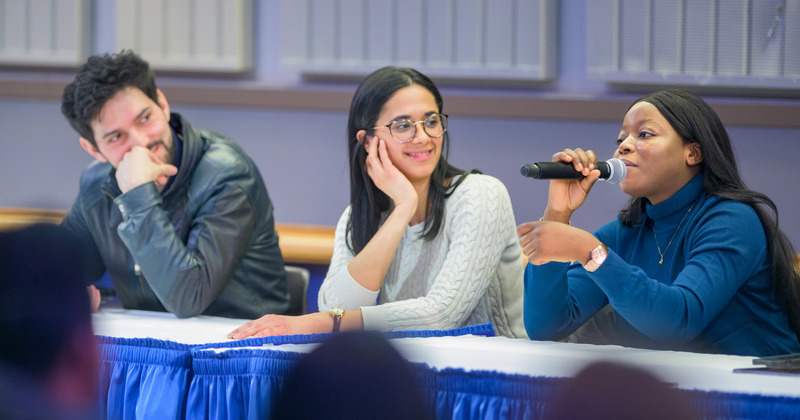
Art History Curatorial Track (PhD)

ART HISTORY, CURATORIAL TRACK (CTPHD)
Building on its longstanding reputation for object-oriented scholarship, the University of Delaware offers a unique Doctorate program in Art History focused on curatorial studies. It provides students with a broad range of skills necessary to become an effective and creative museum professional. Students will work closely with artworks and decorative arts objects, engage with the latest research and practice of conservation specialists, study technical art history approaches, learn about public engagement and arts management.
The CTPhD will prepare graduate students in art history for curatorial careers in specialized art historical fields. Internships at local, regional and national museums and specialized curatorial seminars will provide firsthand curatorial, exhibition and publication experience rarely offered through traditional PhD programs. Balancing this, a doctoral dissertation, with the same rigorous requirements as our regular PhD, will assure the development of substantial research and writing skills.
Graduates of the CTPhD program have gone on to assume important curatorial positions in museums, auction houses and other arts institutions across the nation.
The Department accommodates students already holding an MA degree and especially promising students holding a Bachelor’s degree and admitted to our Direct PhD program.
For students seeking a Ph.D. in art history, the department offers two routes to degree completion. One is designed for students who hold an M.A. in art history or its equivalent. The other, the Direct Ph.D. Program, is designed for students who hold a Bachelor's Degree in art history, or a related field, and are seeking a Ph.D. in art history. Students admitted to the Direct Ph.D. Program have the option of stepping out of the program at the M.A. level, having fulfilled the requirements for the M.A. degree.
Applicants to the Direct Ph.D. Program in Art History must hold, or be a candidate for, the bachelor's degree from an accredited institution, and must give evidence to the Graduate College of the University and to the Department of having completed that degree prior to enrollment. 5 Students will normally have completed an undergraduate major in art history, or at least show extensive preparation across a wide range of areas within the field. To be considered, an application form must be presented, along with a brief personal essay discussing the applicant's reasons for pursuing graduate work in art history, plans, and special interests within art history, letters of recommendation from three persons familiar with the applicant's academic work, official transcripts from all institutions attended, and a writing sample.
The writing sample will normally be an academic essay bearing upon the history of art or a related field. The writing sample should be what the applicant considers his or her best work in art history, demonstrating his or her ability to write cogently, to conduct art historical research, and to present a critical reading or interpretation. Although it is not a requirement that the writing sample deal with material related to the applicant's proposed area of specialization, it is essential that it demonstrate the candidate's ability to write well and pursue art historical research at a high level.
Applicants should also have a reading knowledge of at least one language other than English adequate to read art historical scholarship (see Language Requirement). The application deadline is January 2 of each year for admission during the next academic year, beginning the following September. Students are admitted only in the fall academic term. Applicants to the Ph.D. Program in Art History must have completed, or be in the process of completing, a Master's degree.
The University of Delaware holistically supports its graduate students, beginning with their health and wellbeing. Benefits include a subsidized health plan and physical and behavioral health services. UD fosters a culture of academic excellence, with committed faculty and staff and access to state-of-the-art research facilities and technology. UD prioritizes professional development with job training, internships and industry partnerships. Graduates further enhance their professional growth and visibility with opportunities to work on interdisciplinary research teams, present their work at conferences and publish in academic journals. Visit the links below to learn how UD is supporting society’s future leaders, scholars, and innovators.

